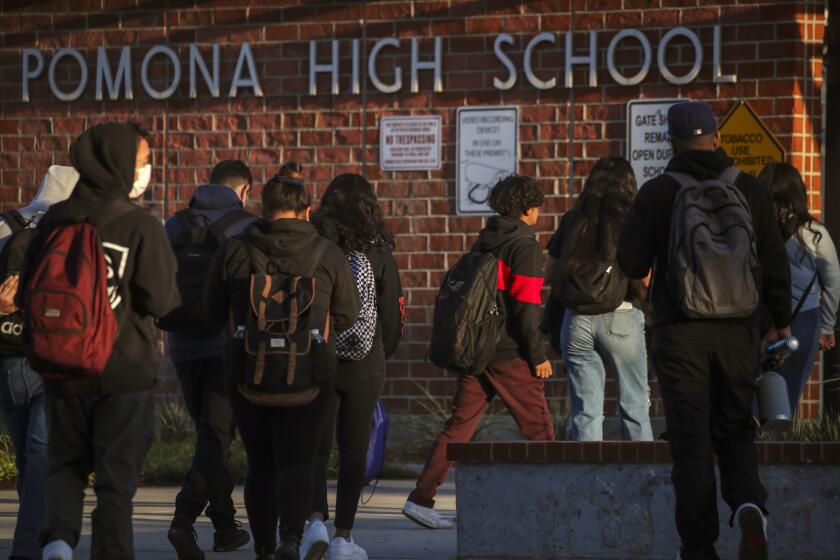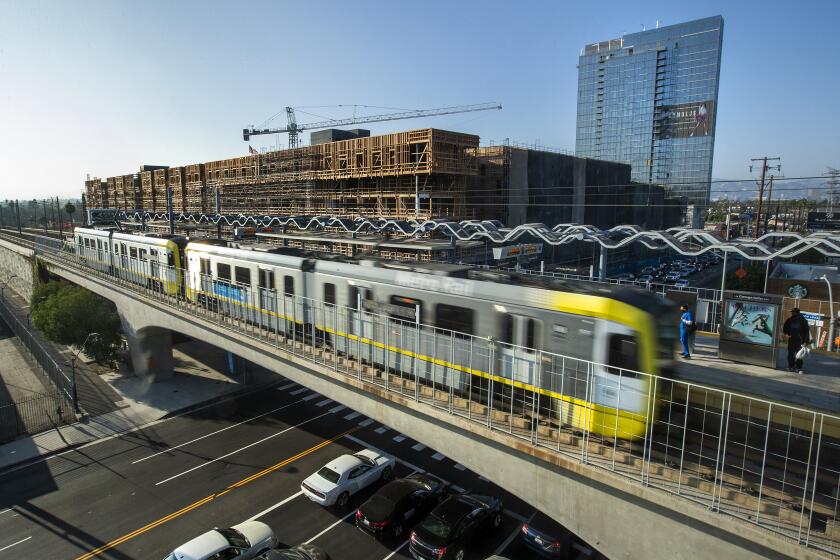Low-income residents to receive debit cards in Oakland’s ‘universal basic mobility’ program

- Share via
After a 2021 pilot program showed potential benefits of “universal basic mobility” in Oakland, the city has doubled down on incentives for public transit.
A thousand residents of West Oakland will be receiving prepaid debit cards with $320 on them for use on public transit, the city said in a statement Thursday.
The criteria? Participants in the pilot program must reside or work in West Oakland and earn less than the area’s median income: $103,500.
Though a six-figure salary may not strike many as “low-income,” the city’s news release categorizes it as such.
The city of Pomona is the latest to implement a guaranteed income program, providing $500 a month to families with children younger than 4.
The cards, issued on a first-come, first-served basis, can be used for Clipper cards or on individual fares from “BART, AC Transit, BayWheels bike share, Lime and VeoRide E-scooters, Amtrak and other forms of public transportation,” the city said.
In total, the project will cost $400,000, and draws on a 2021 pilot program in East Oakland that distributed up to $150 in prepaid cards to 500 residents.
In the 2021 pilot, “40% of participants changed the way they traveled,” the city said, and 23% drove alone less often.
The L.A. Department of Transportation is trying out universal basic mobility — a program giving South L.A. residents cheaper, cleaner options for getting around.
“Too many West Oakland residents struggle to afford their transportation costs,” said Josh Rowan, a spokesman for Oakland’s Department of Transportation.
The project will help people use more sustainable transit options “while reducing auto dependence and wear and tear on our roads,” he said.
Universal basic income has been a popular topic in California, with a number of cities, including Pomona, giving out cash to help struggling residents.
Universal basic mobility programs are more rare. A 2022 pilot program in South L.A. offered $150 in credits in a “mobility wallet” for 2,000 residents to use on public transit.
More to Read
Sign up for Essential California
The most important California stories and recommendations in your inbox every morning.
You may occasionally receive promotional content from the Los Angeles Times.













